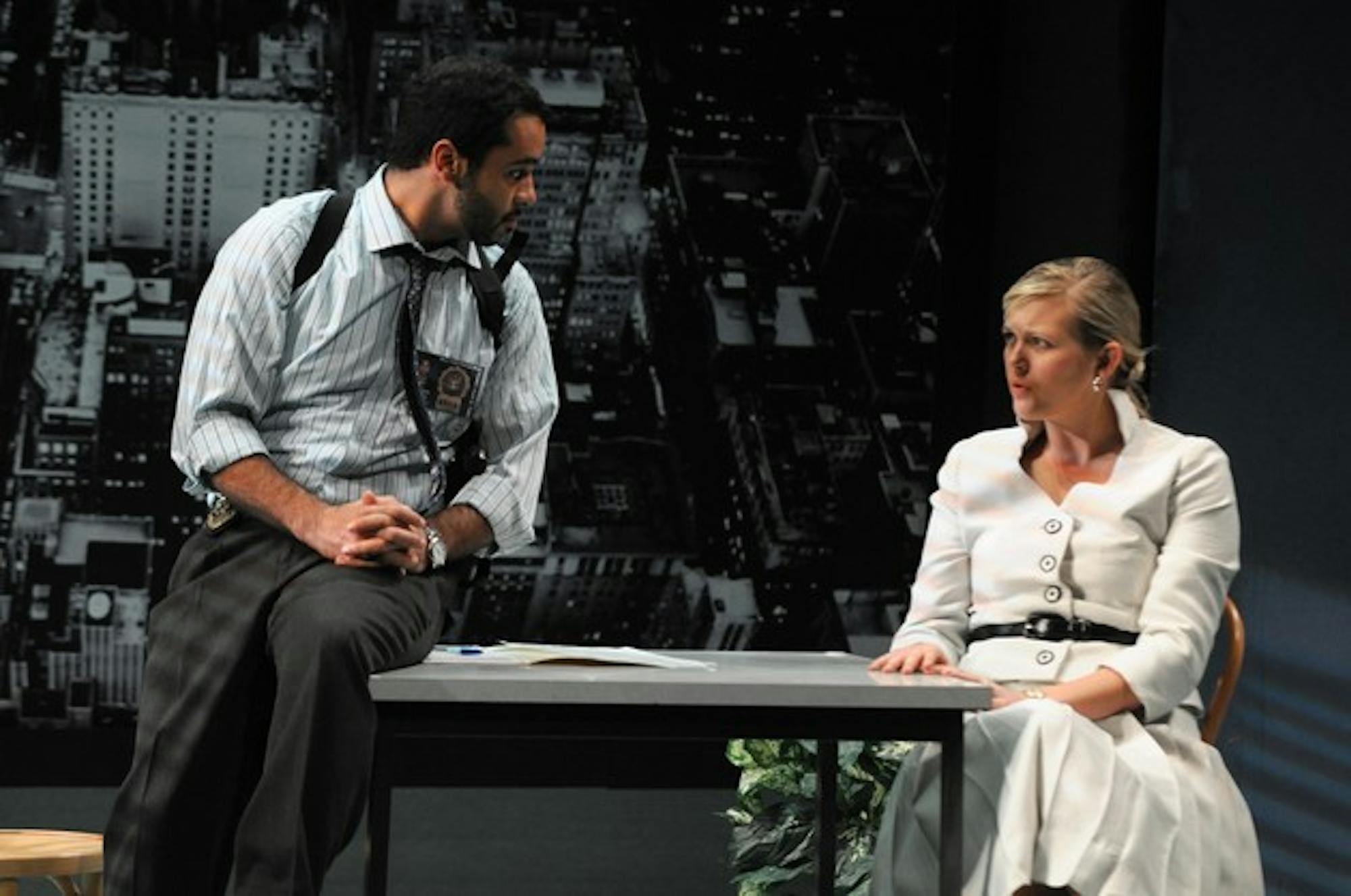"Stop Kiss," which premiered Thursday night, explores the coexistence of love and hate through the story of two women who identify as straight but slowly discover their attraction to one another, only to be torn apart by a heinous act of violence that interrupts their first kiss.
The play's strength comes partly from the realism that dominates the script. The production's dialogue, sound design, lighting and scene transitions remind the audience of its firm situation in time and place -- 1990s New York City.
The story avoids melodrama, despite its heavy subject matter. Instead, playwright Diana Son's understated play encourages the audience to think of the story as one that happens offstage on a day-to-day basis.
The play's realism humanizes the characters and prevents them from becoming caricatures, an accomplishment that challenged the actors to work hard to make their characters as relatable as possible.
"It's such a challenge to step into someone else's shoes," commented actor Sam Gilroy '09 during a question-and-answer session following Friday night's performance.
Gilroy explained the immense differences between acting in a contemporary piece, such as "Stop Kiss," and a grand, classical spectacle such as "Julius Caesar," another recent Mainstage production in which Gilroy appeared as Octavius.
The leads do a fantastic job tackling this challenge.
Callie, played by Courtney Davis '09, is a tough New Yorker who uses her dry sense of humor to cope with an entirely foreign situation.
Davis plays Callie in a completely believable manner, at once retreating into herself and allowing the audience access to her character's psyche.
Davis' costar, Victoria Toumanoff '09, adeptly plays Callie's more extroverted counterpart, Sara.
Toumanoff imbues Sara, a recent transplant from the Midwest to New York City, with an endearing and accurate energy.
Gilroy provides comic relief with his character George, Callie's ex-boyfriend, yet avoids turning the funny-man into a mere caricature.
These characters initially drew the director Jamie Horton to the play and served as inspiration for his realization of the script.
"I hope that, after seeing this play, the audience can take away the same affection that I have for these people," Horton said.
Indeed, it is hard not to feel a connection to the characters, considering the talent of the cast. And because the audience sees Callie and Sara as two real people, they begin to question their understanding of what it means to be gay, straight and bisexual.
Yet for a play that aims to breakdown such labels, Callie and Sara's relationship is based on a relatively conventional dynamic: One woman is the acting force for the relationship, while the other remains unsure of her desires.This set-up recalls the previously dismissed stereotypes. This is just one fault, however, in the multitude of the play's other successes.
Another particularly intriguing aspect of the play is its nontraditional narrative structure. Instead of following a linear plot line, the play jumps back and forth between events that transpired before and after the attack.
Instead of following a linear plot line, the play jumps back and forth between events that transpired before and after the attack. This challenged the actors to switch between contrasting emotions within a matter of seconds.
"The music really helped me with these transitions," Davis said. "The emotions of the music guide you to the next scene as you walk, literally, back and forth across the stage."
This structure could easily serve as a distraction that breaks the audience's concentration. Instead, the music and the set, as well as the subtle links in dialogue between consecutive scenes, help the audience make the transitions between scenes as seamlessly as the actors.
It is this timeline that also allows for the play's long-lasting impact. The resolution comes as part of the rising action, allowing the climax to come at the very end.
The play concludes abruptly, and the audience members must complete the plot in their head, using the scenes they have already witnessed.
Post-performance discussions like Friday's session with the cast help the audience process the play more fully. Audience members were given the opportunity to ask questions of and share feedback with the cast.
Many members of the audience wished to thank Horton and his cast for the hard work they put into the production.
"I think that the whole LGBT community would want to thank you for putting on such an enlightened portrayal of a same sex couple," one audience member said.
"Stop Kiss" completed the first leg of its run over the weekend, and will resume with performances Wednesday through Friday nights at 8 p.m. and a Saturday matinee at 2 p.m. at the Moore Theater in the Hop.




![HONEYJOON_[Ines Gowland]_4.PNG](https://snworksceo.imgix.net/drt/7af2efc8-1bd1-4001-b754-e2718ce663b8.sized-1000x1000.PNG?w=1500&ar=16%3A9&fit=crop&crop=faces&facepad=3&auto=format)